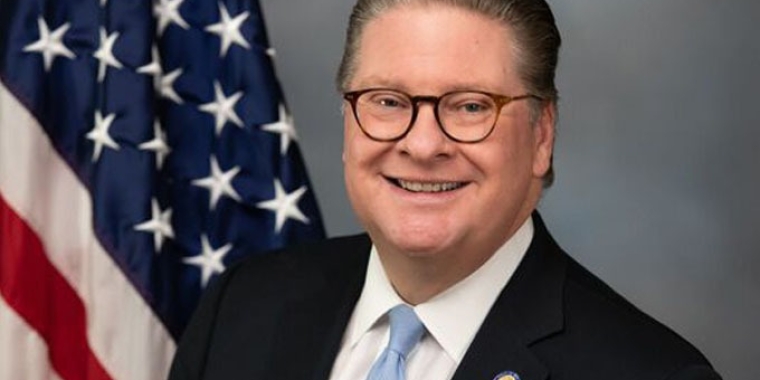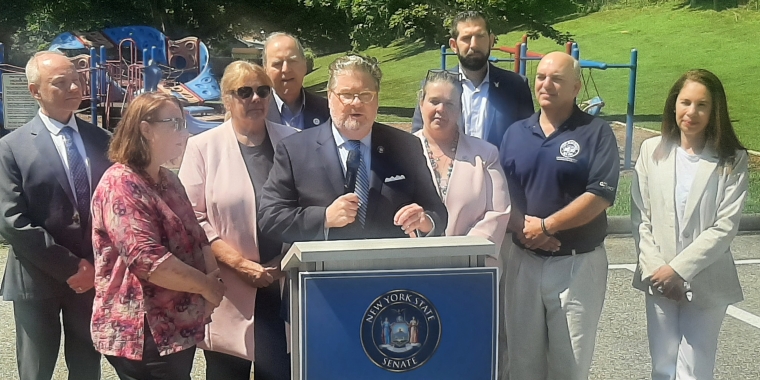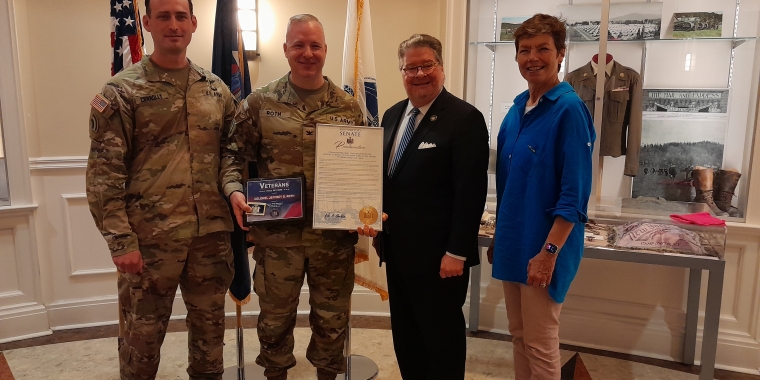
Harckham Co-Sponsors Bills to Protect the Rights of Women Traveling to New York for Reproductive Health Care
May 6, 2022

Albany, NY – New York State Senator Pete Harckham announced today he is co-sponsoring two separate bills that will protect the rights of women traveling to New York for reproductive health care. The legislation is timely because of the apparent decision by the U. S. Supreme Court to overturn Roe v. Wade, the landmark case that made abortion legal nationwide.
The first bill (S.9039), introduced by State Sen. Alessandra Biaggi, gives women the claim of unlawful interference with their protected rights if choosing to travel to New York and obtain medical care involving reproductive or endocrine functions results in criminal or civil complaint brought in any court in the country. Included in the bill’s protections would be plans to travel to New York for reproductive medical care and procedures, as well as telehealth visits with medical providers in New York.
The second bill (S.8778), introduced by State Sen. Liz Krueger, states that law enforcement officers may not arrest any person for providing reproductive health care within New York State. The law also protects individuals obtaining reproductive health care in New York, if treatments or procedures are performed in accordance with article 25a of the public health law or any other applicable law of this state. It also says that no state or local law enforcement agency shall cooperate with or provide information to any individual or out-of-state agency or department regarding the provision of lawful health care procedures performed in New York.
“In New York, we remain committed to upholding the rights of women to receive reproductive health care of their own choosing without governmental intrusion,” said Harckham. “If the U. S. Supreme Court overturns Roe v. Wade, I am certain that women will travel to New York, where they will still be able to get the care they require and desire without unlawful interference from those endeavoring to limit their rights to this care.”
According to a report from The Hill, 22 states will ban abortion as soon as the Supreme Court delivers its decision on Roe v. Wade, which could come as early as next month. In most of these states, performing an abortion will be a felony as well. As a result, pregnant women who can afford to travel out of state to obtain reproductive health care will do so, while others will turn to non-clinical methods to terminate pregnancies or simply carry unwanted pregnancies to term.
The specifically protected rights in the two bills Harckham is co-sponsoring include the right to reproductive health care, such as the legal termination of a pregnancy, plus the right to obtain medical care like hormone therapy or other therapies related to gender. In claims for unlawful interference of protected rights, women would be able to recover their attorney’s fees and receive compensatory damages.
Studies have shown that by the time most women are past six-week restrictions in many states’ reproductive statutes when they know they are pregnant. In addition, most women who are denied access to reproductive health care are more likely to live in poverty, and their existing children are affected developmentally in terms of language and social skills.
“In light of the leaked Supreme Court decision to overturn the precedent set by Roe v. Wade, New York State must be a leader and stand with women to protect their right to body autonomy and the right to receive the health care they want and deserve,” said Vince Russell, president and CEO of Planned Parenthood Hudson Peconic. “The consequences of this impending Supreme Court decision will be swift and devastating for communities nationwide: it means in half the country, people would no longer have the power over their own bodies and their own lives. It means 36 million women, nearly half of the women of reproductive age (18-49) in the United States plus people who can become pregnant, could soon lose abortion access. We must protect abortion care in New York State and protect those traveling to New York State for care.”



